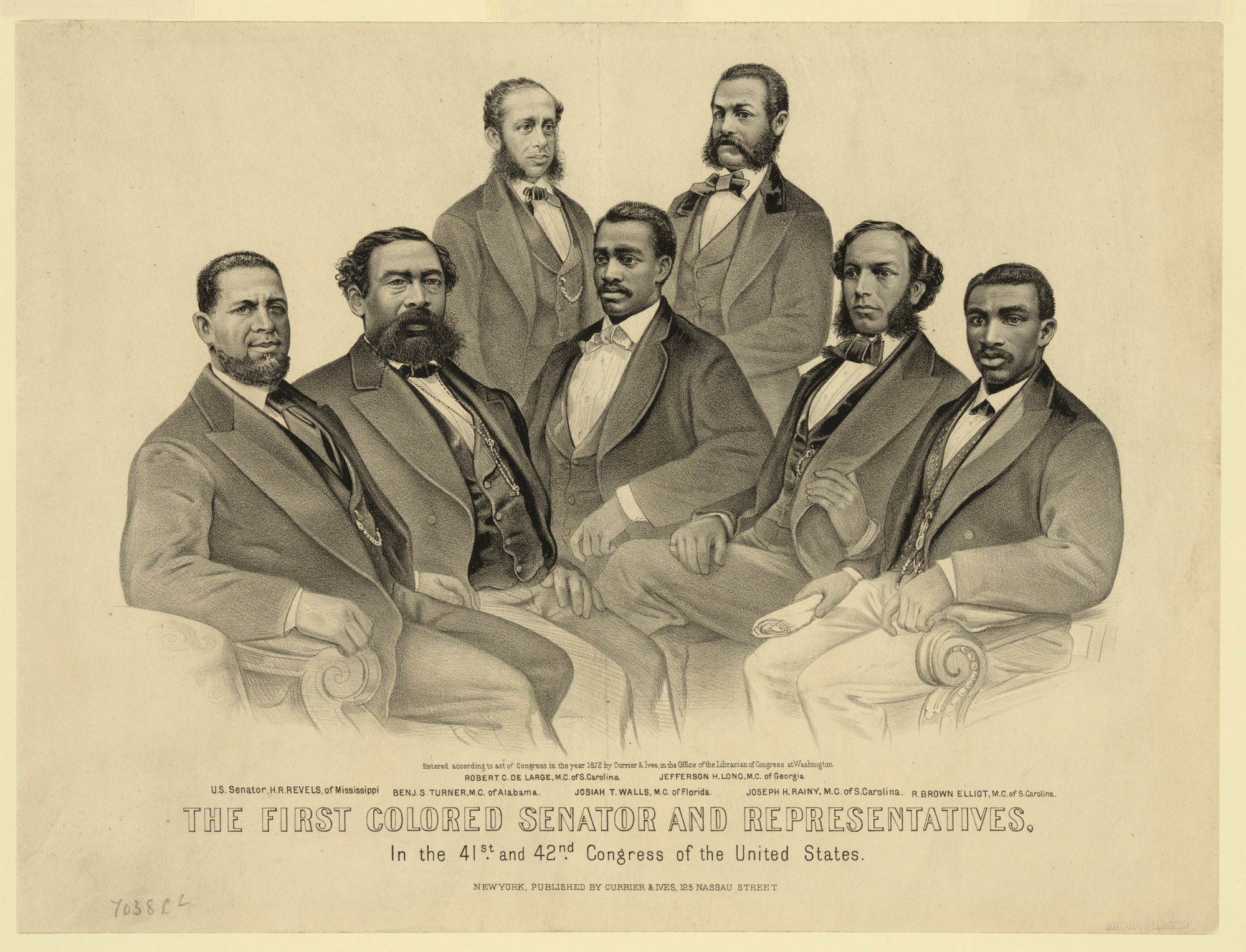Report on Legal Challenge to U.S. Attorney Appointment in New Jersey and Implications for SDG 16
Introduction: Institutional Integrity and the Rule of Law
A legal challenge in New Jersey concerning the appointment of the acting U.S. Attorney has brought significant focus to the principles of institutional integrity, accountability, and the rule of law. The case, involving defendant Julien Giraud Jr., directly intersects with the objectives of Sustainable Development Goal 16 (SDG 16), which aims to promote peace, justice, and strong institutions. The controversy surrounding the appointment of Alina Habba serves as a case study on the importance of transparent and accountable governance (SDG 16.6) and adherence to legal frameworks governing public office.
Background of the Appointment and Procedural Chronology
The appointment process for the acting U.S. Attorney for New Jersey has been marked by a series of procedural maneuvers that have raised questions regarding compliance with the Federal Vacancies Reform Act (FVRA). Adherence to such legal statutes is fundamental to upholding the rule of law, a key target of SDG 16.3.
- Alina Habba was appointed interim U.S. Attorney. Concerns were raised regarding a lack of prosecutorial experience and allegations of politicizing the office, which challenges the principle of effective and accountable institutions (SDG 16.6).
- The FVRA limited her initial interim term to 120 days. A permanent nomination was submitted but did not advance in the Senate, a process central to representative decision-making (SDG 16.7).
- A judicial panel denied a request to extend Ms. Habba’s term, instead appointing the first assistant U.S. attorney, Desiree Leigh Grace, in accordance with vacancy laws.
- Subsequently, Ms. Grace was dismissed by Attorney General Pam Bondi. Ms. Habba’s nomination was withdrawn, and she was then appointed as first assistant U.S. attorney, a position that allowed her to once again become the acting U.S. attorney under a different provision of the vacancy rules.
The Giraud Case: A Legal Test for Prosecutorial Legitimacy
The federal case of United States v. Giraud has become the primary venue for challenging the legality of Ms. Habba’s reappointment. The defendant’s motion to dismiss the indictment is predicated on the argument that the appointment violates federal law, thereby nullifying the authority of the prosecutor’s office. This legal action directly invokes the principles of equal access to justice and the rule of law (SDG 16.3).
Core Arguments of the Legal Challenge
- Violation of the FVRA: The central claim is that Ms. Habba’s reappointment contravenes the FVRA, which explicitly prohibits an individual whose nomination has been sent to the Senate from serving in an acting capacity in the same role, even if the nomination is later withdrawn.
- Lack of Legal Authority: The motion argues that if the appointment is invalid, any official actions undertaken by the office, including criminal prosecutions, are “without legal effect.”
- Constitutional Implications: The challenge frames the situation as an “unconstitutional executive usurpation of judicial authority,” questioning the very foundation of the prosecutorial actions being taken.
Implications for Justice Systems and Sustainable Development Goal 16
The outcome of the Giraud case carries significant implications for the administration of justice in the district and the broader objectives of SDG 16.
- Systemic Disruption: A ruling in favor of the defendant could prompt similar motions in all federal cases within the district, potentially halting thousands of prosecutions and severely impeding the delivery of timely justice, a core component of SDG 16.3.
- Accountability and Rule of Law: Conversely, a successful challenge could reinforce the importance of strict adherence to statutory laws governing appointments, thereby strengthening institutional accountability (SDG 16.6) and the rule of law (SDG 16.3).
- Corruption and Institutional Trust: The perception that appointments are manipulated to circumvent established procedures can erode public trust and suggest a vulnerability to corruption and politically motivated actions, running counter to the aims of SDG 16.5 (Substantially reduce corruption and bribery).
- Conclusion on SDG 16: This case highlights the critical interdependence of transparent appointment processes, judicial oversight, and the overall health of a justice system. Upholding the integrity of institutions is not merely a procedural matter but is essential for ensuring the peace, justice, and effective governance envisioned by SDG 16.
Analysis of Sustainable Development Goals in the Article
1. Which SDGs are addressed or connected to the issues highlighted in the article?
The primary Sustainable Development Goal (SDG) addressed in the article is:
-
SDG 16: Peace, Justice and Strong Institutions
- Explanation: The article’s central theme revolves around the integrity of the justice system, the rule of law, and the accountability of public institutions. It details a conflict over the legitimate appointment of a U.S. attorney, questioning whether the appointment process followed the law (the Federal Vacancies Reform Act) or was a politically motivated act of “corruption of the system.” The entire narrative focuses on ensuring that institutions like the U.S. Attorney’s office are effective, accountable, and free from political manipulation, which is the core mission of SDG 16.
2. What specific targets under those SDGs can be identified based on the article’s content?
Based on the focus on SDG 16, the following specific targets are identifiable:
-
Target 16.3: Promote the rule of law at the national and international levels and ensure equal access to justice for all.
- Explanation: The legal challenge initiated by Julien Giraud Jr.’s attorney is a direct attempt to “promote the rule of law.” The motion argues that Alina Habba’s appointment “directly violates the FVRA.” The outcome of this case will determine the validity of prosecutions under her authority, directly impacting “access to justice” for all defendants in the district.
-
Target 16.5: Substantially reduce corruption and bribery in all their forms.
- Explanation: The article explicitly frames the situation as a potential case of political corruption. It states that many have been “waiting to see who would fight back against Trump’s corruption of the system” and suggests the appointment was made because “Trump wanted to do a favor for his personal lawyer.” This points directly to concerns about using public office for personal or political gain, a form of corruption that Target 16.5 aims to reduce.
-
Target 16.6: Develop effective, accountable and transparent institutions at all levels.
- Explanation: The controversy scrutinizes the accountability and effectiveness of the U.S. Attorney’s office. The legal maneuvers described, such as Habba resigning as interim U.S. attorney only to be hired as first assistant to regain the acting role, challenge the transparency and accountability of the appointment process. The legal filing argues that if the appointment is invalid, decisions made by her office are “without legal effect,” questioning the institution’s effectiveness.
-
Target 16.7: Ensure responsive, inclusive, participatory and representative decision-making at all levels.
- Explanation: The article highlights the role of the Senate in the appointment process, noting that “New Jersey’s senators have thus far blocked her from consideration.” The subsequent actions by the administration to withdraw the nomination and use a different mechanism to install Habba can be seen as a maneuver to circumvent this “participatory and representative” part of the decision-making process, which involves legislative oversight.
3. Are there any indicators mentioned or implied in the article that can be used to measure progress towards the identified targets?
The article implies several qualitative indicators that can be used to measure progress:
- For Target 16.3 (Rule of Law): An implied indicator is the existence and outcome of legal challenges to the authority of public officials based on statutory appointment rules. The motion filed by Thomas Mirigliano to dismiss charges “on the grounds that Habba isn’t the real U.S. attorney” is a direct instance of this indicator. The article notes that if successful, “every subsequent defendant will try the same tactic,” suggesting this could become a measurable trend.
- For Target 16.5 (Corruption): An implied indicator is the number of senior government appointments challenged as being violations of anti-corruption principles or statutory law. The entire case described in the article serves as an example. The characterization of the appointment as a “favor for his personal lawyer” and an act of “corruption of the system” provides the qualitative data for this indicator.
- For Target 16.6 (Accountable Institutions): A key indicator implied is the level of adherence to laws governing the appointment of officials in public institutions, such as the Federal Vacancies Reform Act (FVRA). The central legal question of whether Habba’s reappointment “directly violates the FVRA” makes adherence to this law a direct measure of institutional accountability and transparency.
4. Summary Table of SDGs, Targets, and Indicators
| SDGs | Targets | Indicators Identified in the Article |
|---|---|---|
| SDG 16: Peace, Justice and Strong Institutions | 16.3: Promote the rule of law at the national and international levels and ensure equal access to justice for all. | The filing of legal motions challenging the legitimacy of a prosecutor’s appointment based on the violation of statutory law (the FVRA). |
| SDG 16: Peace, Justice and Strong Institutions | 16.5: Substantially reduce corruption and bribery in all their forms. | Instances of high-level appointments being described as political “favors” and “corruption of the system,” leading to legal challenges. |
| SDG 16: Peace, Justice and Strong Institutions | 16.6: Develop effective, accountable and transparent institutions at all levels. | Measured adherence to the Federal Vacancies Reform Act (FVRA) in the appointment of acting officials, with violations indicating a lack of accountability. |
| SDG 16: Peace, Justice and Strong Institutions | 16.7: Ensure responsive, inclusive, participatory and representative decision-making at all levels. | Instances of executive branch actions designed to bypass the participatory role of the Senate in the confirmation process for senior appointments. |
Source: prospect.org







